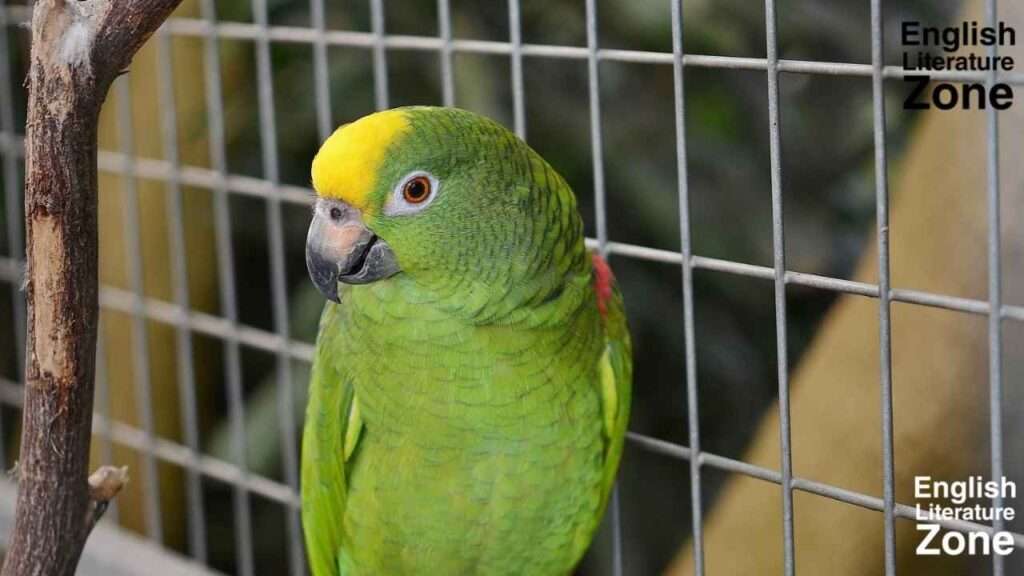
Introduction
The poem “Obituary” is written by A. K. Ramanujan, full name Attipate Krishnaswami Ramanujan who was an Indian English Literature. The poem was published in 1971. In the present poem “Obituary” means a notice of death in a newspaper including a brief biography. The poem is written about the death of his father. The poet explains how his death has affected his family and what his father has achieved in his life.
About A. K. Ramanujan
A.K. Ramanujan was a great Indian Poet, translator, and scholar of Indian Literature and linguistics. He was born in Mysore, Karnataka, to a Brahmin family that loved and encouraged learning. He was fluent in many languages including English, Kannada, and Tamil. Ramanujan was also awarded “Sahitya Akademi Award” posthumously in 1999 for “The Collected Poems”. His notable works include The Stories, Second Sight, A River, and Relations.
Structure of The Poem
It is an eight Stanza poem and each stanza contains seven lines. These lines do not follow a specific rhyme scheme and meter.
Theme Of Obituary
Death of the father, the consequences the son and his family faces the death of his father, and the ridicule of rituals is the main theme of the Poem.
Analysis Of Obituary Poem
The poet started this poem by saying when his father died he left nothing for the family but problems like dust on a table of paper debts, unmarried daughters, and bedwetting a grandson whose name is after him because of “Toss of a Coin”. The lines show the poet’s dissatisfaction with his father. He does not seem to be sorrowful because of death. The poet is more concerned about the duties of his family which he has performed. He has to pay the debts of his father, he has to marry off his sister and also has to take care of a young child who urinates in bed.
In the olden days, daughters were considered a burden because the girl’s family had to not only take responsibility for all the marriage expenses but also give a huge dowry to the boy’s family. This indicates that the father has left his family with nothing but liabilities to be paid off.
These lines also show the culture of a typical Indian family which is patriarchal in nature. Neither the mother of the poet nor his sister is earning. As the poet is now the eldest male in the family all the duties are bestowed on him. The poet continues that his father has left a house that leaned slowly through our growing years on a bent coconut tree in the yard.
The lines mean that they have inherited a house from his father who is leaning on a coconut tree and thus in bad condition. The poet calls his father the burning type, indicating that he was a bad-tempered man and would never behave properly with him or the other family members. Being not tempered he burned properly at the cremation.
The lines continue from the previous one. He is burnt very easily from both sides, except his coins here coins mean – the anger of his greed for money which didn’t look one bit different even after burning, and also several spinal diseases though some of them burnt to coal.
This stanza continues from the previous one. According to the poet, the remains of his father’s pyre are left for sons to pick as the priest said, facing east where their rivers met near the railway station. The lines show that the priest forces the son to perform Hindu rituals. The poet is in no way ready to do it. His father has no grave as his ashes and remains are thrown in the river with his full name.
In the fifth stanza, the poet says that his father was born into the Brahman, family. In Hinduism, the Brahmans are worshipped as “Avtaras Of Gods”. However, the poet shows that his father took birth as Brahman got his birth was Surgical and even his death could not be controlled. His father died in the market of heart failure and he could not save himself.
These lines in other sense mark that he has achieved nothing in this world. His birth was surgical and what he did in his life showed his incapability.
In the sixth stanza, the poem sees that two lines were written for his father inside the column of a Madras newspaper which is sold by the kilo after four weeks after his death to street hawkers. These street hawkers sell it in turn to the small groceries. From these groceries, the poet buys salt, coriander, and jaggery in newspaper cones which he reads for fun.
In the last stanza, the poet says that he began to buy more of these things in the hope of finding these Obituary Lines which were written for his father. His father left for him a changed mother and more than an annual ritual. The poet is showing his dislike for the ritual which is celebrated in memory of his father for his peace.
Conclusion
Thus, the poet A. K. Ramanujan says that his father achieved nothing in this world except those two lines of the Obituary which were written in the newspaper he could never find out. The poem “Obituary” is hence a Critique of the poet’s father and his incapabilities.




